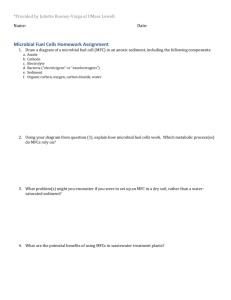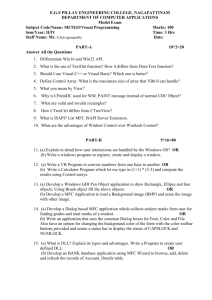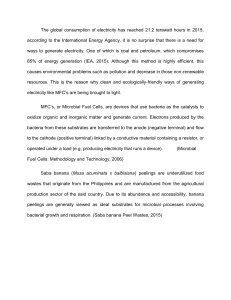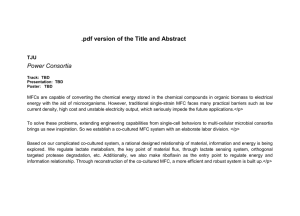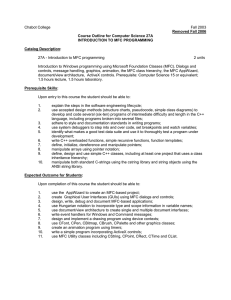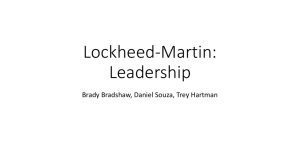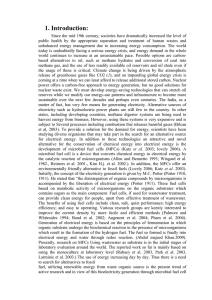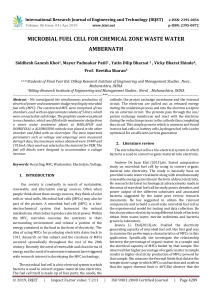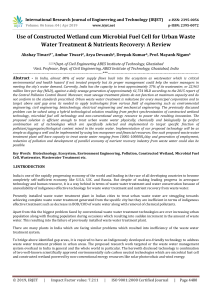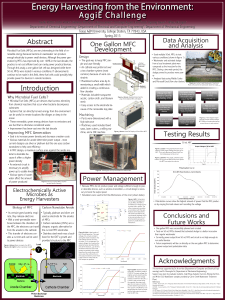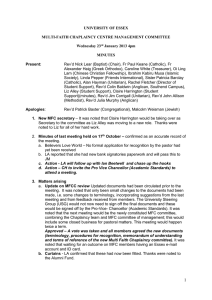Microbial Fuel Cell (MFC): preliminary study on electricity generation using... Abstract MFC is a bio-electrochemical approach ...
advertisement
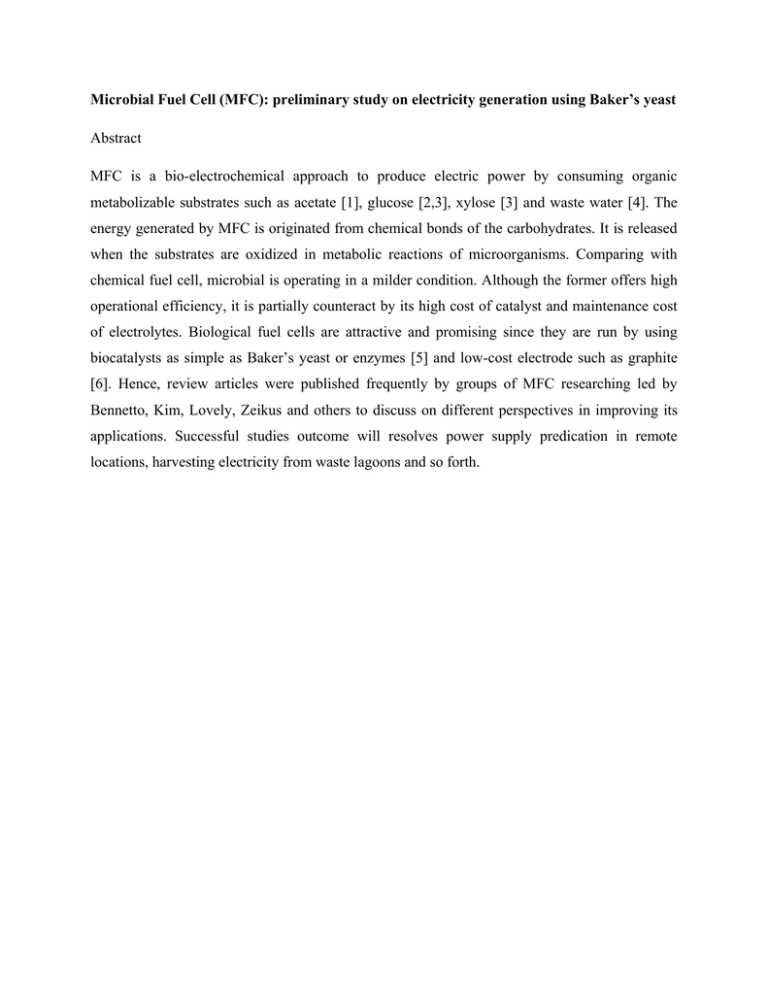
Microbial Fuel Cell (MFC): preliminary study on electricity generation using Baker’s yeast Abstract MFC is a bio-electrochemical approach to produce electric power by consuming organic metabolizable substrates such as acetate [1], glucose [2,3], xylose [3] and waste water [4]. The energy generated by MFC is originated from chemical bonds of the carbohydrates. It is released when the substrates are oxidized in metabolic reactions of microorganisms. Comparing with chemical fuel cell, microbial is operating in a milder condition. Although the former offers high operational efficiency, it is partially counteract by its high cost of catalyst and maintenance cost of electrolytes. Biological fuel cells are attractive and promising since they are run by using biocatalysts as simple as Baker’s yeast or enzymes [5] and low-cost electrode such as graphite [6]. Hence, review articles were published frequently by groups of MFC researching led by Bennetto, Kim, Lovely, Zeikus and others to discuss on different perspectives in improving its applications. Successful studies outcome will resolves power supply predication in remote locations, harvesting electricity from waste lagoons and so forth.
